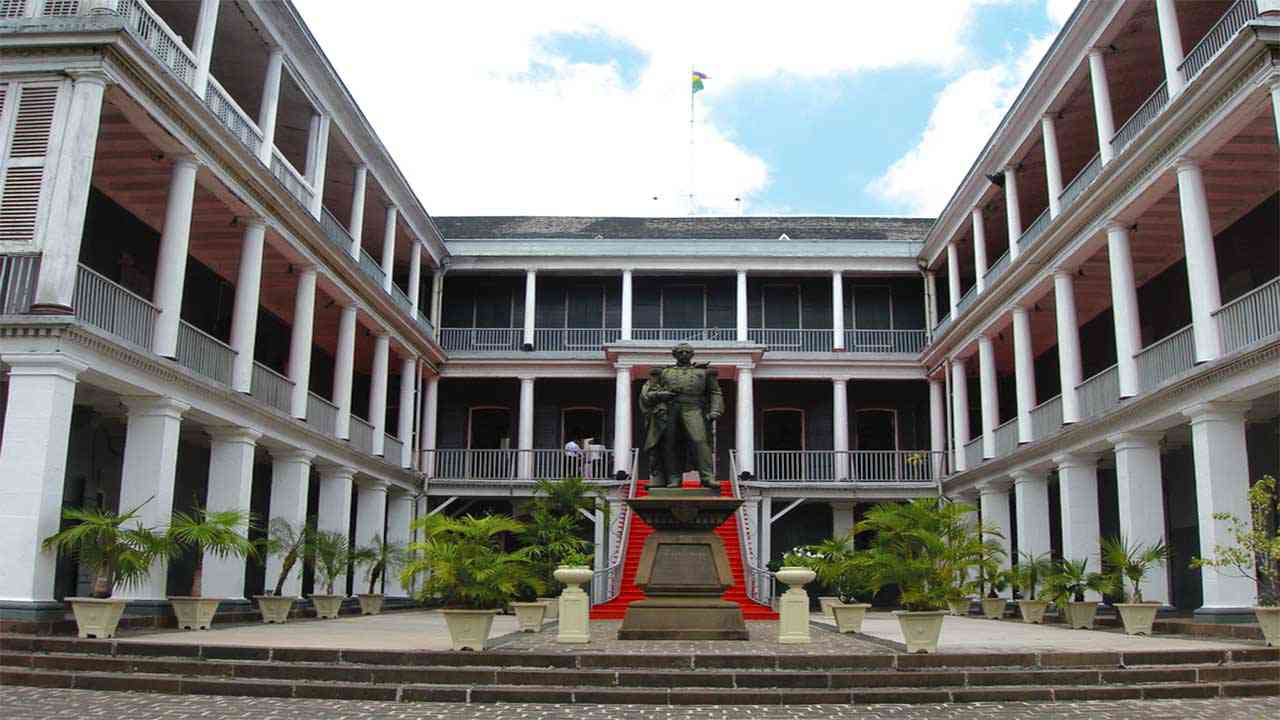
The year 2016 is coming to an end and it will be soon time for a retrospection to assess our achievements this year. Currently, good governance is sparking debates, following the removal from office of Air Mauritius CEO Megh Pillay. However, the situation is far from overshadowing other major national issues.
Good governance is making headlines ever since Air Mauritius CEO has been shown the door on Friday 28 October 2016. One week later, the Cabinet of Ministers took note of the ‘National Code of Corporate Governance for Mauritius (2016)’, endorsed by the National Committee on Corporate Governance. The main objectives of the Code are to introduce and encourage organisations to comply with good governance practices, and empower participation of stakeholders in ensuring that these practices are effectively implemented. The code is applicable as from the present financial year that started on 1st July 2016. To recall, the code was introduced in 2014.
“Governance” and “good governance” are being increasingly used in development literature. Good governance has eight major characteristics. It is participatory, consensus oriented, accountable, transparent, responsive, effective and efficient, equitable and inclusive and follows the rule of law. It assures that corruption is minimized, the views of all groups are taken into account and that the voices of the most vulnerable in society are heard in decision-making. It is also responsive to the present and future needs of society. Good governance impacts many spheres of socioeconomic life and the principles of good governance may ensure the success of many important issues at stake.
Other main issues
‘Economic Miracle’
The promised second ‘economic miracle’ is one of the main expectations of the nation, after the presentation of the ‘Vision 2030’ and the national ambition to become a high income country. The ‘miracle’ depends on investment, economic reforms and innovation. Various measures have been announced in the last Budget and the implementation phase is ongoing. The opening of major projects will contribute towards job creation and opportunities for entrepreneurship.
 Public transport
Public transport
Public transport in Mauritius is awaiting its moment of glory. The forthcoming Metro Express will transform the transport landscape of Mauritius. However, until then, the public transport system in most parts of the island needs an urgent revisiting. The introduction of semi-low floor buses has indeed changed the look of our transport sector, but there still remains much to do. Outdated regulations, lack of innovation, poor customer service, inefficient systems, ill-planned routes and improper infrastructure are some of the ills plaguing the system. It is hoped the authorities will not wait until the eve of the coming into operation of the Metro Express in order to reorganize the public transport system. Road congestion is another headache that seriously affects productivity. In 2005, there were about 319,000 vehicles on our roads. Under the Road Decongestion Programme, various projects have been implemented to decongestion our road network, for example by-passes, third lanes, bridges, etc. Today, with our vehicle fleet having crossed the 500,000 mark, all the extra road space created has been filled up, taking back to the same situation a decade ago! Building more roads is not the only solution, as other measures need to be taken simultaneously for results to show. Until future huge projects unfold, small adjustments in the road network can bring big relief but there is a lack of innovation.
 Urban planning
Urban planning
The real estate sector is booming in Mauritius, with the country now entering the era of Smart Cities. But poor urban planning, especially on the coastal regions, will seriously undermine physical development with built up areas serviced by unasphalted sugarcane track roads devoid of drains. Urban planning is a major issue that should be tackled to project the real estate sector.
 Poverty
Poverty
Eradication of poverty is a major issue on the agenda. The authorities have already started with the registration of poor families on the Social Register of Mauritius. But the fight against poverty also involves proper access to housing, education, equal opportunities, jobs and training to become more employable.
Energy
Energy crisis has not yet reached our doorsteps, but energy supply is an imporant issue. With so many huge projects in the pipelines, including Smart Cities, business hubs, industrial parks, etc, demand for energy is set to rise. Renewable energy is still in its infancy on the island. On the other side, inadequate supply is another obstacle to development.
 Dan Maraye: “Transparency is a must”
Dan Maraye: “Transparency is a must”
Dan Maraye, former Governor of the Bank of Mauritius, is of the view that the National Code of Corporate Governance for Mauritius (2016) is a step in the right direction. However, he feels that the Code should be adhered to by both the public and private sectors. “The sooner it is implemented, the better for our country,” he says. “Transparency is a must, especially in companies with many small shareholders. They should be reassured about the roles of non-executive chairmen and CEOs. There must always be at least two executive directors and the CEO must be a Board member. In cases where the CEO is not a member of the Board, there is risk of abuse In Mauritius, most chairmen of parastatal bodies are political appointees, and the tendency is to please their political masters, rather than acting in the interest of the organization or of the country. This practice must be discouraged,” says Dan Maraye.
He explains that good governance can be enhanced in many ways, for example, in the case of listed companies, the Stock Exchange Commission can request for quarterly published accounts instead of six-monthly. He further advocates the need for a ‘certificate of morality’ before a person is appointed as a Board member. Dan Maraye regrets that the Code of Good Governance does not make provision for increasing transparency in companies where the State is a major shareholder. “Let’s take the case of SBM or Air Mauritius. We often hear ministers refusing to divulge information when answering Parliamentary Questions on these institutions, arguing that they are private companies.
We need to find a solution to this. Furthermore, we need to tackle the issue of conflict of interest when the same person is a member of different Boards. It is also important to limit the number of Boards a person can be a member of. Finally, I believe Code of National Governance cannot work on the principle of voluntary compliance. This should be imposed on institutions by law, otherwise we will simply be wasting our time. In most parts of the world, such codes of voluntary and we have seen how institutions were gripped by crisis. True it is that international experts may not advocate compulsory adherence, but as a citizen, I know my country better and I am all for compulsory adherence.”

 Zohra Gunglee: “Excellent initiative”
Zohra Gunglee: “Excellent initiative”
Economist Zohra Gunglee says the idea of a Code of Good Governance is an excellent initiative, but this should concern both public and private sectors. « The Code will encourage and further promotes efficiency and equal opportunity, among others.” However, she argues that it is difficult to force institutions to follow the Code to the letter. « Those who value the concept of good governance will automatically adhere to the principles, but others will simply ignore it. The principles of good governance must be taught at secondary level, to prepare the youth and equip them with necessary values which would prove useful when they join the labour market. The youth will in due course hold positions of responsibility and a thorough acquaintance with good governance at a very young age will help shape their mindset.”
 Main principles
Main principles
Accountability
Accountability is a fundamental requirement of good governance. An institution has an obligation to report, explain and be answerable for the consequences of decisions it has made on behalf of the community or people it represents.
Transparency
People should be able to follow and understand the decision-making process. This means that they will be able to clearly see how and why a decision was made – what information, advice and consultation were considered, and which legislative was followed.
Rule of law
This means that decisions are consistent with relevant legislation or common law and are within the powers of the institution.
Responsive
An institution should always try to serve the needs of the entire community while balancing competing interests in a timely, appropriate and responsive manner.
Equitable and inclusive
A community’s wellbeing results from all of its members feeling their interests have been considered in the decision-making process. This means that all groups, particularly the most vulnerable, should have opportunities to participate in the process.
Effective and efficient
An institution should implement decisions and follow processes that make the best use of the available people, resources and time to ensure the best possible results for their community.
Participatory
Anyone affected by or interested in a decision should have the opportunity to participate in the process for making that decision. This can happen in several ways – community members may be provided with information, asked for their opinion, given the opportunity to make recommendations or, in some cases, be part of the actual decision-making process.
 J'aime
J'aime














